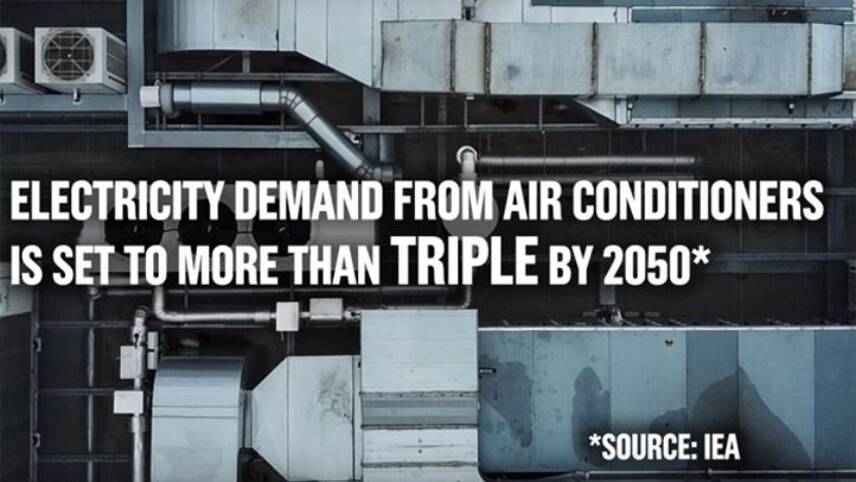Register for free and continue reading
Join our growing army of changemakers and get unlimited access to our premium content

The initiative is open to businesses of all sizes and sectors. Image: The Climate Group
Developed in partnership with the Alliance to Save Energy, the Cooling Challenge aims to help firms across sectors such as manufacturing, hospitality and retail progress more quickly toward their energy productivity goals and benefit from greater economic output per unit of energy consumed.
The scheme falls under The Climate Group’s energy productivity campaign, EP100, which requires signatories to either double their energy productivity, make their buildings net-zero carbon or implement an energy management system, based on which of these actions is most relevant to their business model.
Companies to have joined the EP100’s Cooling Challenge in its first week include Dubai-based property manager Majid Al Futtaim, which manages a portfolio of shopping centres and leisure facilities; Indian hotelier Mahindra group; Johnson Controls; and Godrej’s chemical manufacturing, consumer goods and farming and food arms.
“With electricity demand from air conditioners alone set to more than triple by 2050, companies have an immediate opportunity to invest in energy-efficient cooling that will lessen further climate impact and generate substantial financial savings,” The Climate Group’s chief executive Helen Clarkson said.
“This is about preparing your business for the future.”
Firm foundations
In joining the Cooling Challenge, each of the partaking businesses agreed to asses their energy use to ascertain their cooling “hotspots”.
Majid Al Futtaim found that cooling accounts for 40% of its utility bills, and has therefore invested in new controls to better match cooling schedules with operation schedules. The firm is notably aiming to sequester more carbon than it emits by 2040.
“Due to the hot and humid climate in the markets where we operate across the Middle East, Africa and Asia, air conditioners and cooling systems make up the most of our power consumption.” Majid Al Futtaim’s chief sustainability officer Ibrahim Al Zu’bi explained.
“To reach our net-positive goal, we are investing heavily in optimizing the efficiency of our cooling systems through innovations, behavioral change and constantly measuring our impact to ensure minimal greenhouse gas emissions.”
For Goodrej, cooling is a key challenge for the firm’s 90+ manufacturing plants. After moving to replace old, inefficient chillers, and to measure indirect cooling emissions as well as direct emissions, the company will now invest in improving cold-chain logistics, storage and air conditioning in commercial spaces. These improvements are likely to be facilitated through the Internet of Things (IoT) and Artificial Intelligence (AI) technologies.
State of play
By 2050, the number of air conditioners in use across the world is predicted to rise from 1.2 billion to 4.5 billion as temperatures increase, populations gravitate towards cities and developing nations experience economic growth. While this uptake could be lifesaving for the 12,000 people killed by heatwaves each year, it could eat into a substantial chunk of the world’s remaining carbon budget.
In response to the issue, nations across the world have committed through the Kigali amendment to the UN Montreal Protocol to reduce hydrofluorocarbons by 85% between 2019 and 2036. It is believed that the Kigali amendment is likely to avoid close to 0.5C of global warming by the end of the century, if successfully implemented.
To find out more about low-emission cooling for your business, you can download the edie Explains guide to low-carbon heating and cooling, produced in association with EDF Energy, by clicking here.
Sarah George


Please login or Register to leave a comment.